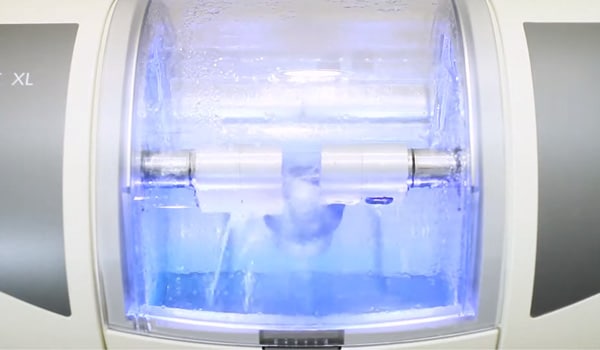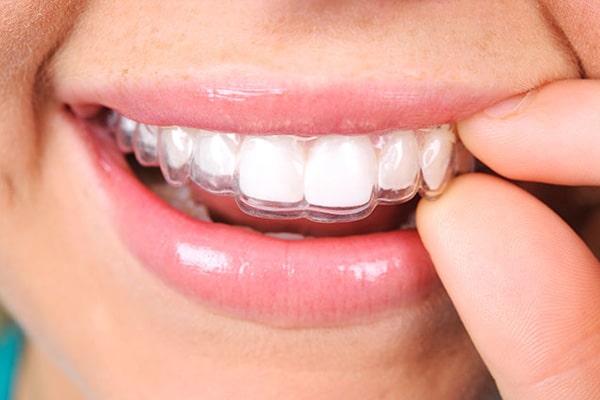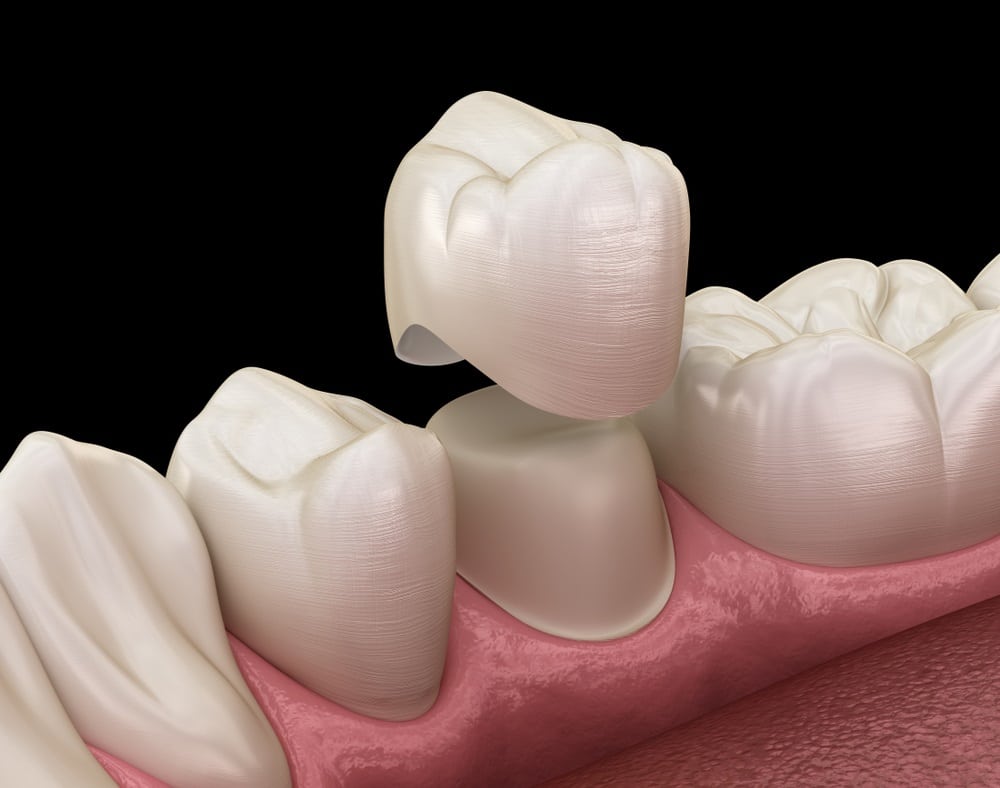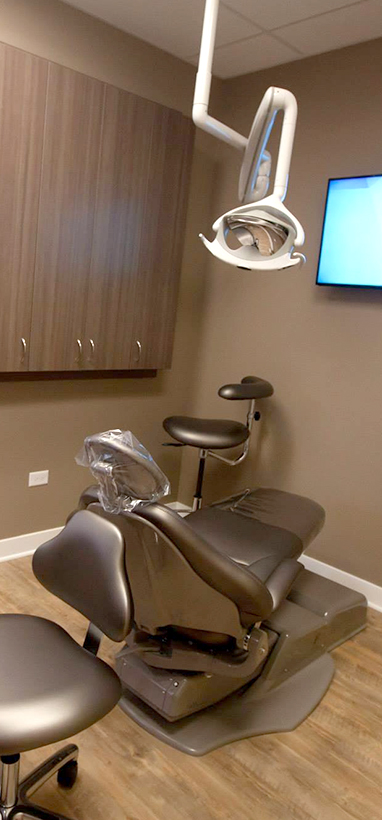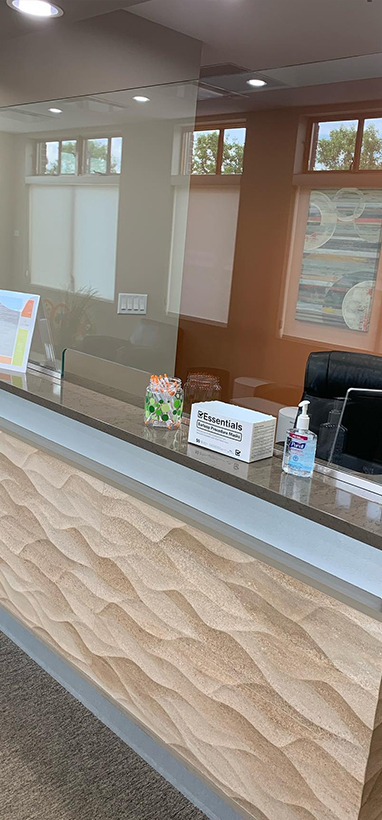1516 Legacy Cir, Naperville, IL 60563
Canker Sores: Causes, Symptoms and Treatments

We’ve all had a canker sore at one point or another. From a small lesion popping up after accidentally biting our inner cheek, to a new sore after a little too much acidic fruit, the reason for a canker sore can be random and harmless, yet it is quite a nuisance.
While canker sore symptoms affect about 20% of the population, they are still a misunderstood mouth condition. Thankfully, canker sores are typically relatively quick to heal and are not contagious, although they can cause some pain and discomfort for a week or two.
From what causes canker sores to how to get rid of canker sores, our dental team at Living Well Dental have the insight needed to better understand your in mouth sores and alleviate symptoms. Let’s dive right in.
What is a canker sore?
Are your new braces leading to random lesions in your mouth? Do you notice sores with increased stress levels? Or perhaps when you’ve eaten large quantities of citrus fruits? Sounds like you might have canker sores. But what is a canker sore? These common mouth sores aren’t as scary as you may think. Here’s why.
Canker sores, also known as an aphthous ulcer, are in mouth sores that appear as small, shallow ulcers. A canker sore develops at the base of the gums or in the soft tissue in the mouth. These white or yellowish lesions will be surrounded by redness and are typically very small, but can get to be as large as one inch in diameter.
Beyond just inside the mouth, sometimes you will find a canker sore on tongue, canker sore on gum, or a canker sore on lip. However, to be classified as a canker sore, the lesion must appear within the mouth, not on the outer portion of lips or face.
There are a few different types of canker sores that you may notice, including:
- Minor canker sores: will show up a few times a year and are less than 1 centimeter across. These typically occur in those 10 to 20 years of age and will heal in just about one week.
- Major canker sores: these larger ulcers can last around two weeks, and may scar. This is a less common form of canker sore.
- Herpetiform canker sores: with a different appearance than the classic canker sore, these sores show up as tiny clusters of ulcers. This form of canker sore is rare and will heal in about a week.
Canker sores are not a big cause for concern. In fact, this is one of the most common types of mouth lesions, and affects about 20% of people.
The main downside to canker sores is that they will make eating and talking uncomfortable, as the canker sore in mouth rubs as you move your mouth, causing discomfort. Thankfully, cankers sores clear up quickly, so your mouth won’t be too uncomfortable for long.
Canker sore symptoms
A canker sore is pretty easy to detect, especially once it starts causing discomfort when you eat or speak. These in mouth sores will look like a white or yellow patch in a round or oval shape, surrounded by a bit of redness. These can appear anywhere within your mouth – whether it be on your inner lip, on the inside of cheeks, on the tongue, or near the gums.
Canker sore symptoms, beyond the visible sore, may include some tingling and burning prior to the sore appearing. You may also experience painful gums or some bleeding of the gums, depending on how sensitive your mouth becomes as a result of the sores.
Sounds painful, right? Yes, canker sores can cause some pain. Thankfully, you’ll notice canker sore relief in just about a week, depending on the severity of your sore. You may be wondering, are canker sores contagious? And no! Thankfully, as long as the sore is within your mouth and qualifies as a canker sore, it is not contagious, so you only have to worry about your own sores healing, and not about passing them along to someone else. A big relief!
Now, let’s answer the question – how do you get canker sores?
What causes canker sores?
Unfortunately, what causes canker sores is not fully understood, and there are a multitude of possibilities as to why you are experiencing a canker sore. With these in mouth sores appearing in a range of places within the mouth – from a canker sore on gum to canker sore on tongue, and canker sore on lip – it’s hard to determine one, specific cause.
But, if you’re notice a canker sore in mouth, it may be for any of these below reasons:
- Injury to the mouth – whether from dental work and braces, vigorous tooth brushing, accidentally biting your inner cheek, or even a sports injury
- Emotional stress
- Hormonal shifts
- A diet lacking in zinc, folate, B-12, or iron
Food sensitivities, specifically in the case of coffee, strawberries, nuts, eggs, cheese, chocolate, or spicy and acidic foods - Citric or acidic fruits and vegetables
- Anti-inflammatory drugs, like ibuprofen
Toothpaste made with sodium lauryl sulfate - An allergic reaction to bacteria in your mouth
- Smoking
Whew, that’s a long list of what causes canker sores. Ultimately, there are a lot of reasons you may be experiencing canker sores. If you repeatedly notice them popping up, it will be important to take note so you can better understand what your own trigger is.
How long do canker sores last?
So, we now know what a canker sore is and what can cause it, but how long do canker sores last? Great question.
While a canker sore can be a nuisance, they typically don’t last too long. In the case of a minor sore, which is only about 3 to 10 millimeters, these can take as little as one week to heal, so they won’t remain an issue for long and won’t scar. In some cases it can take up to two weeks to heal.
When it comes to a larger canker sore, known as a major canker sore, the larger, deeper sore can take around two weeks, but sometimes as long as six weeks to heal. This more painful canker sore can also leave scarring.
If you have a persistent sore that is around for more than 2 weeks, consider visiting your dentist to take a second look. If your sore is causing pain when eating or drinking, if you notice you’re getting them frequently, or if it’s starting to cause pain around or in your teeth, schedule an appointment with Living Well Dental Group online. We can evaluate your canker sore quickly and help provide relief.
How to get rid of canker sores?
Canker sores can be a persistent, annoying mouth problem that has you searching for canker sore relief. Since they don’t last very long and will often remain minor, canker sore treatment isn’t always necessary, although there are some options to alleviate your symptoms and reduce the day-to-day discomfort.
If you’re wondering about how to get rid of canker sores, a good place to start is with a mouth rinse. Your dentist can prescribe you a mouth rinse that contains dexamethasone, a steroid that will reduce the pain and inflammation you’re experiencing.
Another canker sore remedy is a topical product. This can come in both a prescription and over-the-counter form as a gel, cream, paste, or liquid that will help alleviate some of the pain and speed up the healing process. These products will include ingredients like fluocinonide, benzocaine, and hydrogen peroxide. However, we recommend you consult with your dentist to find the right option for you.
In the case of a more persistent canker sore, you may want a canker sore medicine in the form of an oral medication. This is best for using after topical treatments didn’t work. Options for a canker sore medicine include medications that aren’t specific to canker sores, like intestinal ulcer treatment sucralfate, or oral steroid medications, which typically are used as a last resort.
One other small change you can make if you’re noticing recurring canker sores is to take nutritional supplements. Sometimes, canker sores can pop up due to a lack of vitamins like zinc, vitamin B-12, folate, or vitamin B-6, so you can incorporate more of these vitamins in your diet to try to avoid future sores.
Canker sore vs cold sore
A big question when people notice a canker sore is, “is this a cold sore?” Canker sores and cold sores are not the same, and here’s why.
Cold sores, also known as herpes simplex type 1 or fever blisters, are fluid-filled blisters that are painful and can appear in groups. Unlike canker sores, cold sores are actually highly contagious and they often occur on the outside of the mouth.
When it comes to a canker sore vs cold sore, it’s important to note that a canker sore is a form of in mouth sores. These will not appear on the outer lips like a cold sore. Additionally, canker sores are not contagious – a big difference between the two forms of mouth sores.
Conclusion
Canker sores can be a painful nuisance. Although they can heal quickly and will be undetectable to others, the painful sores can leave you frustrated and uncomfortable. However, by figuring out what is triggering your canker sore outbreak, and finding the right canker sore treatment, you can reduce your symptoms and lessen the likelihood of getting another canker sore in the future.
If you’re experiencing frequent, painful canker sores, it may be time to talk with a dentist to help make your day-to-day life more comfortable. Living Well Dental Group can find the right canker sore remedy for you. Book an appointment online today for a canker sore-free mouth.



